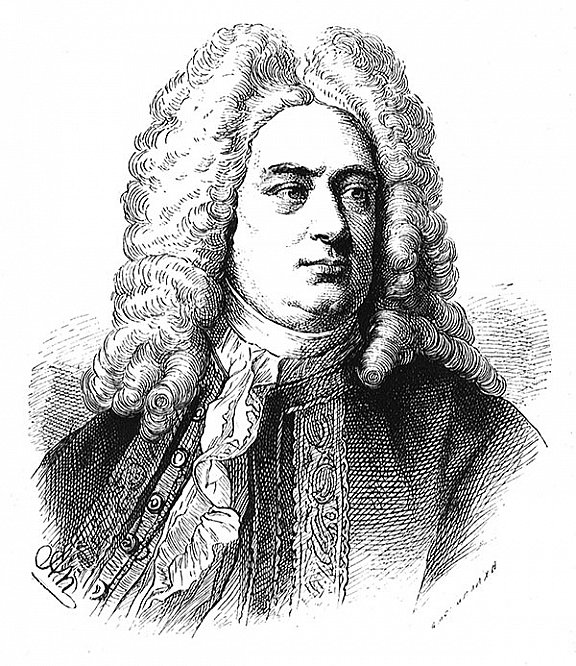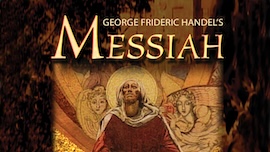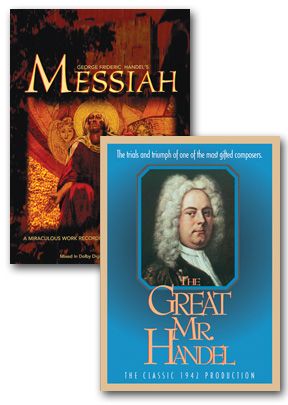The World First Heard Handel's Masterpiece, Messiah

German-born Handel gained his success in England.
IN THE MID-EIGHTEENTH CENTURY, German-born composer George Frederic Handel dominated the English musical scene. His ascendency came only after many years of hardship. It began when his father forbade him to study music as a child, wanting his son to become a lawyer instead. Handel defied the parental order, practicing secretly on a small harpsichord in the top room of his house. He studied law, too, but it was music that held his heart, and he played for churches while attending law school.
As a young man, he began writing operas, cantatas, anthems and other vocal works. Struggling against established artists on the European continent, he tried his luck in England, arriving in 1712. He successfully staged Italian operas for the aristocracy. However, his career truly took off in 1736, when the success of his cantata Alexander’s Feast showed him that he could attract English middle class audiences with English choral works. He became especially noted for his oratorios. These were lengthy works usually based on biblical themes, such as Solomon, from which we get the famous excerpt “Arrival of the Queen of Sheba.” In 1742, Handel composed the oratorio for which he is most widely known: the Messiah.
By then, he had already suffered a stroke. Nonetheless, he wrote the music—over two hours in length—-in an incredibly short twenty-three days. Although most of his musical work catered to London audiences, the Messiah debuted in Dublin where the Duke of Devonshire had invited Handel to give a benefit concert for local charities. Handel deliberately wrote the Messiah to be adaptable to small ensembles so that it could be performed for charities that did not have large musical resources. Proceeds from the first performance of Messiah went to assist imprisoned debtors and other needy groups.
The world first heard the Messiah on this day, Tuesday, 13 April 1742 in the Fishamble Street Musick Hall. It began with a beautiful overture, followed by the lovely recitative, “Comfort Ye,” based on a prophecy by Isaiah. Memorable recitatives, arias, and full-throated choruses followed for over two hours more. Midway through the first of the Messiah’s three parts was a lush three-and-a-half-minute “Pastoral Symphony.” The famous “Hallelujah” chorus capped the second part. Handel later claimed that while writing this chorus, “I did think I did see all heaven before me and the great God himself!”
The reception in Dublin was all Handel could have wished. The music critic of the Dublin Gazette wrote, “Words are wanting to express the exquisite delight it afforded...” Londoners, however, criticized the Messiah, which did not become popular there until 1749. Today England’s greatest orchestras perform it and it has been played countless times in concert halls and churches around the world.
The strength of the work is partly due to the libretto (text) compiled by Charles Jennens. A devout Anglican, he wove together passages of Scripture that emphasized the divinity of Christ and his fulfillment of prophecy. John Newton, a slave-ship captain who had become a clergyman and author the hymn “Amazing Grace,” preached fifty sermons on Jennen’s libretto, saying that it covered all the principal truths of the gospel. Jennens, though, complained that Handel’s music didn’t do justice to his script!
Handel wrote other masterpieces, such as his organ concertos and his orchestral pieces the Water Music and the Royal Fireworks Music. But the Messiah was the greatest of his many choral works.
—Dan Graves
------ ------- --------
Listen to George Frideric Handel's Messiah at RedeemTV
For more about Handel and his famous oratorio, vision video has a two-pack set, George Frideric Handel's Messiah / Great Mr. Handel








